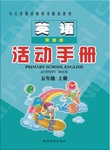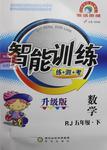题目内容
Was it under the table ___________he finally found her lost pen?
A. which B. where C. what D. that
练习册系列答案
 互动课堂系列答案
互动课堂系列答案 激活思维智能训练课时导学练系列答案
激活思维智能训练课时导学练系列答案
相关题目
题目内容
Was it under the table ___________he finally found her lost pen?
A. which B. where C. what D. that
 互动课堂系列答案
互动课堂系列答案 激活思维智能训练课时导学练系列答案
激活思维智能训练课时导学练系列答案